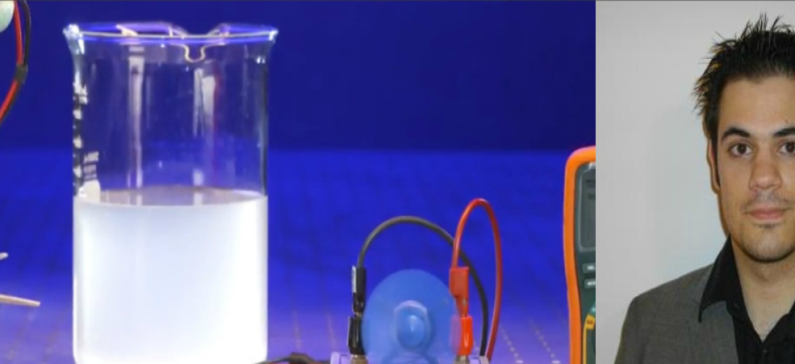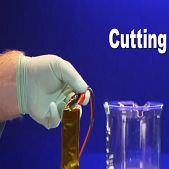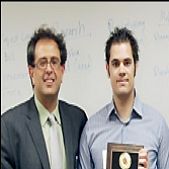
He made the most durable battery in the world
Konstantinos Gerasopoulos is Senior Scientist at The Johns Hopkins University Applied Physics Laboratory.
He is a graduate of the School of Electrical and Computer Engineering of the National Technical University of Athens (NTUA) and took his PhD in Materials Science at the University of Maryland. Since April 2015 he has been a senior researcher at The Johns Hopkins University APL.
A team of scientists at APL, led by Konstantinos Gerasopoulos, has partnered with researchers from the University of Maryland (UMD) and the Army Research Laboratory (ARL) to develop a new type of flexible lithium-ion battery that can operate under extreme conditions, including cutting, submersion and ballistic impact.
Lithium-ion batteries have become the energy storage method of choice for consumer electronics and military and aerospace systems alike. But potential safety hazards associated with the organic electrolytes that are used in Li-ion battery cells remain an ongoing concern.
In their paper, “Flexible Aqueous Li-ion Battery with High Energy and Power Densities,” which was published online last month in Advanced Materials, the scientists describe their work, which builds upon a novel, highly-concentrated water-based electrolyte called “water-in-salt” that can address the instability of traditional Li-ion batteries. The team is looking for opportunities to transition the technology to make it available to the military.
“We wanted to show the real implications of this technology in practical applications,” said Kostas Gerasopoulos. “Particularly for our military, with our [soldiers] exposed to extreme conditions and environments during their missions, the capability to maintain both safety and performance is unprecedented,”
“We want to increase the robustness of the [electrolyte] and the energy density of the batteries even further,” Gerasopoulos said. “This work though proves the concept that we can build safe Li-ion batteries that can survive mechanical abuse.”











